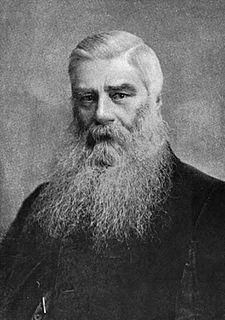A Quote by B. C. Forbes
Selfishness corrodes. Unselfishness ennobles, satisfies. Don't put off the joy derivable from doing helpful, kindly things for others.
Quote Topics
Related Quotes
Selfishness is not living as one wishes to live; it is asking others to live as one wishes to live. And unselfishness is letting other people's lives alone, not interfering with them. Selfishness always aims at uniformity of type. Unselfishness recognizes infinite variety of type as a delightful thing, accepts it, acquiesces in it, enjoys it.
Man is more himself, man is more manlike, when Joy is the fundamental thing in him, and Grief the superficial. Melancholy should be an innocent interlude, a tender and fugitive state of mind; Praise should be the permanent pulsation of the soul. Pessimism is at best an emotional half-holiday; Joy is the uproarious labor by which all things live? Christianity satisfies suddenly and perfectly man's ancestral instinct for being the right way up; satisfies it supremely in this, that by its creed Joy becomes something gigantic, and Sadness something special and small.
I'd say that that is a challenge, but it also is, again, it's helpful. It's helpful to have the discipline of, okay, I'm doing, I'm doing something that's quite precise over here, working the puppet, and I'm doing something that's very imprecise and creative and unleashed over here, which is the comedy side. And it's kind of nice to allow your brain to be doing those two things at once.
To be a true hero you must be a true Christian. To sum up then, heroism is largely based on two qualities- truthfulness and unselfishness, a readiness to put one's own pleasures aside for that of others, to be courteous to all, kind to those younger than yourself, helpful to your parents, even if helpfulness demands some slight sacrifice of your own pleasure. . .you must remember that these two qualities are the signs of Christian heroism.
I did not believe him capable of love. That is an emotion in which tenderness is an essential part, but Strickland had no tenderness either for himself or for others; there is in love a sense of weakness, a desire to protect, an eagerness to do good and to give pleasure--if not unselfishness, at all events a selfishness which marvellously conceals itself; it has in it a certain diffidence.
If you asked twenty good men to-day what they thought the highest of the virtues, nineteen of them would reply, Unselfishness. But if you asked almost any of the great Christians of old he would have replied, Love - You see what has happened? A negative term has been substituted for a positive, and this is of more than philological importance. The negative ideal of Unselfishness carries with it the suggestion not primarily of securing good things for others, but of going without them ourselves, as if our abstinence and not their happiness was the important point.
The objects you decide to keep, the ones that gave you the spark of joy? Treasure them from now on. When you put things away, you can actually audibly say, 'Hey, thank you for the good work today...' By doing so, it becomes easier for you to put the objects away and treasure them, which prolongs the spark of joy environment.































